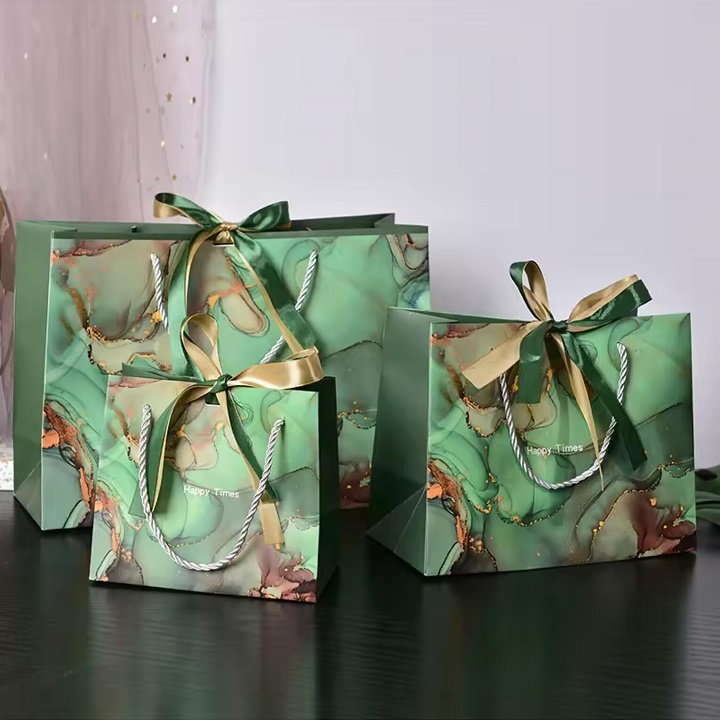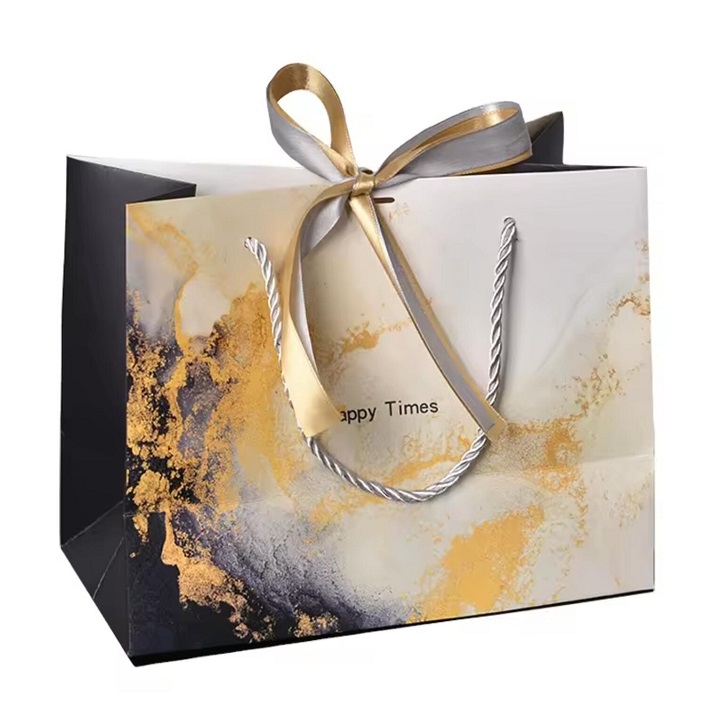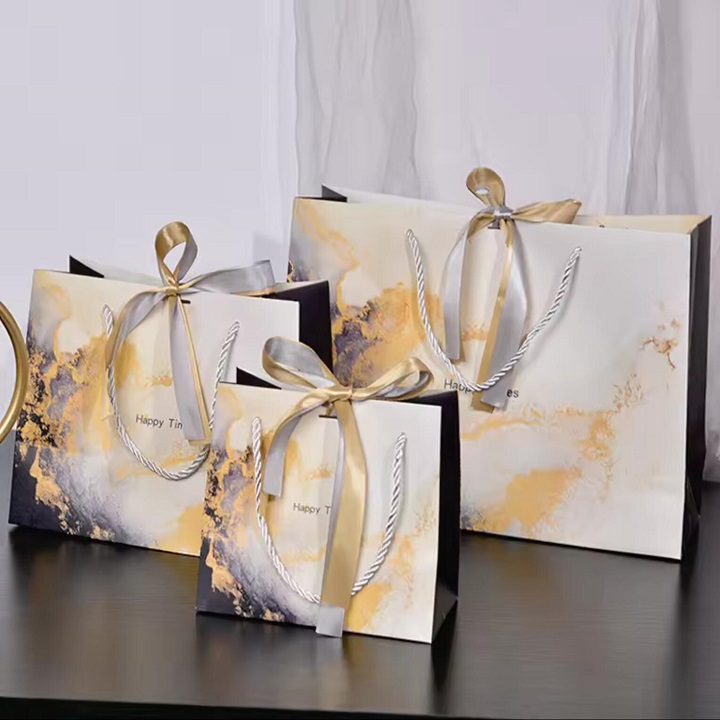Content Menu
● Introduction to the German Tote Bags Industry
● Top Tote Bags Manufacturers and Suppliers in Germany
>> Braun Büffel
>> Picard
>> MCM
>> Liebeskind Berlin
>> FOND OF
>> Ortlieb
>> Deuter
>> Additional Noteworthy Suppliers
● The Tote Bag Manufacturing Process
>> Design and Patterning
>> Material Selection
>> Cutting and Assembly
>> Stitching and Detailing
>> Quality Control
>> Customization and Branding
● Materials and Sustainability
● OEM & ODM Services for Global Brands
● How to Choose the Right Tote Bag Supplier in Germany
● Conclusion
● FAQs
>> 1. What makes German tote bags manufacturers and suppliers stand out?
>> 2. Are sustainable materials commonly used in German tote bag production?
>> 3. Can I order custom tote bags with my brand logo in Germany?
>> 4. How do German manufacturers ensure high product quality?
>> 5. What is the typical lead time for ordering custom tote bags from Germany?
Tote bags have become indispensable accessories in daily life, fashion, and marketing globally. Increasingly popular for their versatility, environmental friendliness, and style, tote bags represent a key product segment for brand promotion and sustainable consumer choices. Germany is renowned for its engineering excellence and manufacturing precision, attributes that extend well into the realm of tote bag production. The country houses a variety of highly respected tote bags manufacturers and suppliers who combine traditional craftsmanship with innovative technology and eco-conscious practices.
This article offers an in-depth exploration of the top tote bags manufacturers and suppliers in Germany. It highlights market leaders, their products, production techniques, and how they cater to OEM and ODM clients worldwide, making Germany a standout country in this sector.

Introduction to the German Tote Bags Industry
Germany's reputation for high standards in manufacturing naturally extends to the tote bag industry. German tote bags manufacturers and suppliers are known for their attention to detail, precision, and commitment to product reliability. This is a market where expertise spans from classic leather artisanship—rooted in centuries-old traditions—to modern factories employing robotics and digital tools.
German suppliers address diverse market demands, ranging from luxury leather totes to eco-friendly, functional designs for everyday use. With increasing global focus on sustainability, many manufactures prioritize environmentally sound materials and processes, further enhancing the appeal of German tote bags.
Top Tote Bags Manufacturers and Suppliers in Germany
Braun Büffel
Established in 1887, Braun Büffel represents the epitome of traditional leather craftsmanship in Germany. Based in Kirn, this historic company creates high-end leather tote bags prized for their durability and timeless style. Braun Büffel integrates natural tanning methods, such as olive leaf tanning, that reduce environmental impact while preserving leather quality.
Their products often come with lifetime repair guarantees, reflecting their confidence in craftsmanship and dedication to customer satisfaction. Braun Büffel now operates globally but retains strong German roots, blending artisan skills with modern facility efficiencies.
Picard
Picard has been a stalwart of the German leather goods market since 1928. Situated in Baden-Württemberg, Picard produces a wide range of leather tote bags that marry function with European elegance. They emphasize sustainable supply chains, using eco-certified leathers and employing renewable energy in production.
Picard provides extensive OEM and ODM services, catering to both luxury brands and mid-market wholesalers. Their bespoke manufacturing processes allow for various customization options from metal fittings to embossed logos.
MCM
Munich-based MCM is famous for its stylish luxury totes featuring the distinctive Visetos monogram. Their products combine fashion-forward design with practical features such as RFID-blocking compartments and water-repellent textiles. MCM benefits from state-of-the-art production lines enabling consistent quality while maintaining artisanal precision.
MCM's collaborations with global suppliers ensure access to premium materials and innovative manufacturing technologies, creating standout products in the global luxury tote bag market.
Liebeskind Berlin
Liebeskind Berlin is widely recognized for its urban-chic handbags and tote bags that appeal particularly to younger demographics. The company operates a highly automated factory in Berlin utilizing digital pattern-making and rapid prototyping tools to accelerate product development.
Focusing on both style and sustainability, Liebeskind integrates organic fabrics, recycled components, and waste-minimizing manufacturing techniques. Their product lines feature leather and canvas tote bags that are practical for daily transport yet stylish enough for city life.
FOND OF
Located in Cologne, FOND OF leads the charge in ergonomic, eco-friendly tote bags and backpacks. Their modular design philosophy allows consumers to customize modular elements that fit urban lifestyles. The brand extensively incorporates recycled polyester, organic cotton, and other sustainable materials.
Advanced 3D prototyping accelerates design iterations, while robotic assembly lines ensure precision in build. Their bags are versatile, lightweight, and increasingly popular among environmentally conscious consumers.
Ortlieb
Ortlieb, headquartered in Heilsbronn, is internationally celebrated for its abrasion-resistant, waterproof outdoor bags, including tote bags developed for cyclists and hikers. They make extensive use of welding technology and PVC-free materials to produce waterproof bags that withstand extreme conditions.
The company employs automated cutting and sealing machines with rigorous quality management, guaranteeing consistent waterproof performance. Ortlieb's products epitomize durability and functionality and meet the needs of adventure and outdoor professionals.
Deuter
Deuter, based in Gersthofen, specializes in ergonomic rucksacks and tote bags designed for trekking, climbing, and travel. The company's bags incorporate Bluesign®-certified materials and innovative load-distribution systems to optimize comfort during extended use.
Deuter leverages precision sewing techniques and environmentally friendly fabrics, making it a preferred brand for high-performance outdoor tote bags and backpacks. Their blend of utility, durability, and sustainable practices is a benchmark in the industry.

Additional Noteworthy Suppliers
Beyond the flagship brands, several other German suppliers contribute to the vibrancy of the tote bag sector:
- Skyflame GmbH offers rapid wholesale order fulfillment with diverse tote bag options.
- Bagobag GmbH focuses on custom printed tote bags, using materials like felt, nylon, jute, and cotton to service promotional markets.
- Aevor blends sustainability and urban design to produce highly functional yet eco-friendly totes.
- Shops like TaschenParadies and FREITAG in Berlin and Cologne specialize in creatively upcycled and customizable bags, targeting eco-conscious consumers.
The Tote Bag Manufacturing Process
The production process of tote bags in Germany showcases a balance between traditional workmanship and technological sophistication.
Design and Patterning
Initial design concepts are translated into digital patterns using advanced CAD (computer-aided design) software. This technology enhances accuracy and streamlines adjustments, allowing for rapid prototyping and efficient sampling.
Material Selection
German manufacturers emphasize sourcing premium, sustainable materials. Options commonly include:
- High-grade leathers tanned using environmentally friendly protocols.
- Organic and recycled cotton fabrics.
- Recycled PET and technical textiles with waterproof or UV-resistant properties.
- Vegan leather alternatives to meet ethical consumer demand.
Cutting and Assembly
Automated cutting machines yield precise fabric and leather pieces with minimal waste. Many factories use programmable CNC machines and laser cutters to achieve the highest accuracy.
Assembly combines machine stitching with hand-finishing in some cases. Skilled artisans contribute to detail-oriented tasks such as placement of embellishments or logo embossing, ensuring each tote bag meets quality standards.
Stitching and Detailing
High-strength industrial sewing machines create durable seams designed to handle heavy loads. Detailing such as metal fasteners, zippers, and handles undergo quality checks to maintain functionality and aesthetic.
Quality Control
Stringent inspections are performed on material integrity, seam strength, finish uniformity, and functional features like waterproofing or RFID protection. German manufacturers often comply with international quality certifications and conduct batch testing for reliability.
Customization and Branding
Most manufacturers provide comprehensive branding services, from embossing leather logos to digital or screen printing designs. Custom packaging and labeling also form part of their OEM/ODM offerings to meet brand identity requirements.
Materials and Sustainability
Sustainability is a cornerstone for many German tote bags manufacturers and suppliers. Key environmental practices include:
- Utilizing biodegradable vegetable-tanned leathers.
- Incorporating recycled and organic raw materials.
- Minimizing chemical treatments in tanning and dyeing.
- Employing renewable energy sources within factories.
- Reducing waste through precision cutting and lean manufacturing techniques.
German suppliers often trace the entire supply chain to certify material origin and environmental impact, showing commitment to responsible production and consumer transparency.
OEM & ODM Services for Global Brands
German tote bags manufacturers and suppliers provide extensive OEM and ODM services tailored for international customers:
- Custom design input incorporates client branding needs.
- Small minimum order quantities accommodate startups and boutique brands.
- Flexible production runs support seasonal and promotional campaigns.
- Advanced prototyping expedites new product development.
- Strict compliance with export, safety, and environmental standards facilitates smooth international trade.
This combination of flexibility, quality, and ethical manufacturing makes Germany a prime source for global companies seeking premium custom tote bags for retail, events, or promotional giveaways.
How to Choose the Right Tote Bag Supplier in Germany
Selecting an ideal German tote bag manufacturer requires evaluating several factors to align with your business goals:
1. Production Capacity and Lead Time: Confirm that the factory can meet your required volumes within acceptable timeframes.
2. Materials and Sustainability Standards: Choose suppliers who prioritize green materials if eco-friendliness is important.
3. Customization Flexibility: Ensure the supplier can handle your logo application, color matching, and bespoke designs.
4. Quality Assurance Processes: Look for certifications, rigorous inspections, and sample approvals before order confirmation.
5. Pricing Transparency and Payment Terms: Compare quotes carefully, considering both cost and value-added services.
6. Geographical Location and Logistics: Proximity to major transport hubs can reduce shipping times and costs.
Prospective buyers benefit from requesting product samples and visiting factories if possible to assess capabilities in person.
Conclusion
Germany stands as a world leader in the production and supply of tote bags, merging traditional expertise with cutting-edge technologies and sustainable ethics. From the enduring elegance of Braun Büffel and Picard to the innovation-driven designs of MCM and FOND OF, the German market offers suppliers for every segment—luxury, urban, outdoor, and eco-friendly.
By providing versatile OEM and ODM services, transparent quality assurance, and a profound commitment to environmental responsibilities, tote bags manufacturers and suppliers in Germany ensure that global brands and businesses receive products that transcend mere functionality. They offer an opportunity to align style, durability, and sustainability in perfect harmony, making Germany a preferred sourcing destination for tote bags worldwide.

FAQs
1. What makes German tote bags manufacturers and suppliers stand out?
German manufacturers combine superior craftsmanship with cutting-edge technology and sustainability. Their rigorous quality standards and customization options deliver reliable, stylish, and eco-conscious tote bags suited for diverse markets.
2. Are sustainable materials commonly used in German tote bag production?
Yes, German suppliers widely use eco-friendly materials such as vegan leather alternatives, organic cotton, recycled PET plastics, and vegetable-tanned leathers, reflecting growing environmental commitments.
3. Can I order custom tote bags with my brand logo in Germany?
Most German tote bags manufacturers and suppliers excel in OEM/ODM services, offering custom branding options including logo embossing, printing, color matching, and packaging tailored to client requirements.
4. How do German manufacturers ensure high product quality?
They implement multi-stage quality controls—from raw materials to finished products—using advanced machinery, skilled labor, and internationally recognized certifications to meet stringent standards.
5. What is the typical lead time for ordering custom tote bags from Germany?
Lead times vary by order complexity and quantity, generally ranging from 3 to 8 weeks. Some suppliers provide expedited production for urgent orders.
































